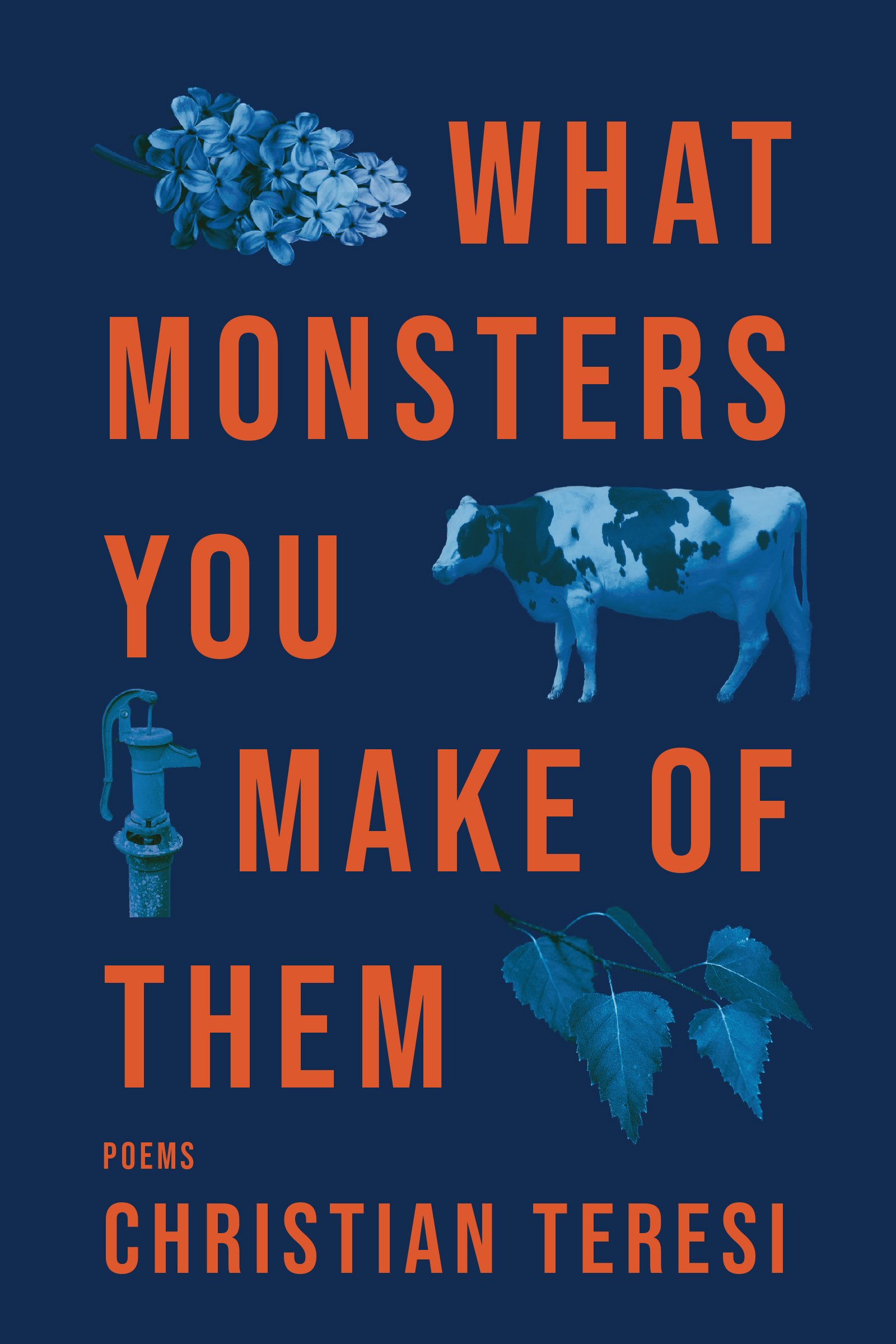Purchase at Bookshop.org, Barnes & Noble, and Amazon.
“These verses allow readers to draw their own conclusions about the costs of human progress and even consider what no longer exists: ‘The ground is woven with the diaphanous swelling of where a birch once was … it is there, even after the ax, even after the hollering rot of a stump.’ Overall, Teresi’s collection offers a cleareyed, inventive take on the effects of power. A cogent, skeptical collection that examines those whose stories are erased or preserved.” — Kirkus Reviews
“Teresi complicates the definition of the American-English ode as it navigates colossal public issues of the 21st century in a very lyrical way. He selects idiosyncratic favorites as his subjects as a first step in customizing his collection 𝘞𝘩𝘢𝘵 𝘔𝘰𝘯𝘴𝘵𝘦𝘳𝘴 𝘠𝘰𝘶 𝘔𝘢𝘬𝘦 𝘰𝘧 𝘛𝘩𝘦𝘮. He tours his own short list of United States national parks, and other iconic spaces as settings. He curates celebrities like Goya, Mike Tyson, and jazz great Sonny Rollins. The electric media have expanded human-scale localities into a patchwork of global culture, so a search engine is needed to stay abreast. Teresi confronts this giant dragon in his brave, thoughtful verse.” — Denise Low, New Letters
“Echoing out from etymology, ‘the place where they plant the unwanted,’ reveling in the pastiche surrreality of U.S. cultural and political history, ‘where each side of time lives in the other’s deepest past,’ Christian Teresi’s exquisite poems are that rare work wrought from deep necessity and sung from an even deeper compassion. Each line captures the ache of desire, the delicate dance of hope, each poem lingering long after reading, haunting ‘As murmurs no longer fluent in their origin.’ Deft in form, this is a dazzling collection, reminding us we are all ‘where the landscape nurtures the in-between,’ and there, in yearning and grace, ‘The end has never been the end.’” — J. Michael Martinez, author of Tarta Americana and Museum of the Americas
“Here, Teresi inhabits people, as well as the spaces between them, to reveal the self as a web of interconnections. The dialogue between famous authors, Mayan gods, mythic figures, and celebrities accumulates into both a communal self as well as a highly personal one—a mind whose edges are defined by what is questioned and considered. When he says, in Metamorphoses, ‘After enough time, no one remembers who anyone was,’ it is actually a celebration of this communal, human interaction.” — Richard Siken, author of I Do Know Some Things, War of the Foxes, and Crush
